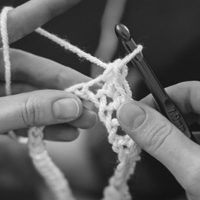Participatory community-based arts for older people living with dementia in the community: how are they evaluated? A scoping review

Accepted: 14 January 2021
HTML: 53
All claims expressed in this article are solely those of the authors and do not necessarily represent those of their affiliated organizations, or those of the publisher, the editors and the reviewers. Any product that may be evaluated in this article or claim that may be made by its manufacturer is not guaranteed or endorsed by the publisher.
Authors
Although the interests in participative arts for people living with a dementia has increased over the last decade, what is yet to be reviewed is how participatory community- based arts activities for this group of people are evaluated. The overall aim of the following scoping review is to understand the scope of measurement/evaluation methods/approaches used in studies that recruited participants with dementia from the community (not from health/clinical or residential aged care settings or nursing homes) and delivered community-based participatory arts activities/programs (not art therapy programs) to them. The methodological framework by Arksey and O’Malley (2005) for undertaking a scoping review article was applied to this study. Collation, summarizing and reporting the results was carried out considering the research questions. 7 articles met inclusion/exclusion criteria published from 2013 to 2020. The type of arts activities included co-designs and co-creation of various types of arts (n=1), museum visiting and art-making activities (n=4), artistic education-based program (n=1), group singing (n=1). This scoping review shed light on the paucity of research in which older people living with dementia were recruited from the community (not healthcare/clinical settings) to participate in participatory community- based art activities. Also, the results revealed that evaluation of participatory community-based arts activities for older people living with dementia in the community should include methods/techniques to get a deeper insight into the participants’ values and perspectives and the social interaction benefits of such programs.
How to Cite
PAGEPress has chosen to apply the Creative Commons Attribution NonCommercial 4.0 International License (CC BY-NC 4.0) to all manuscripts to be published.

 https://doi.org/10.4081/gc.2021.9470
https://doi.org/10.4081/gc.2021.9470



